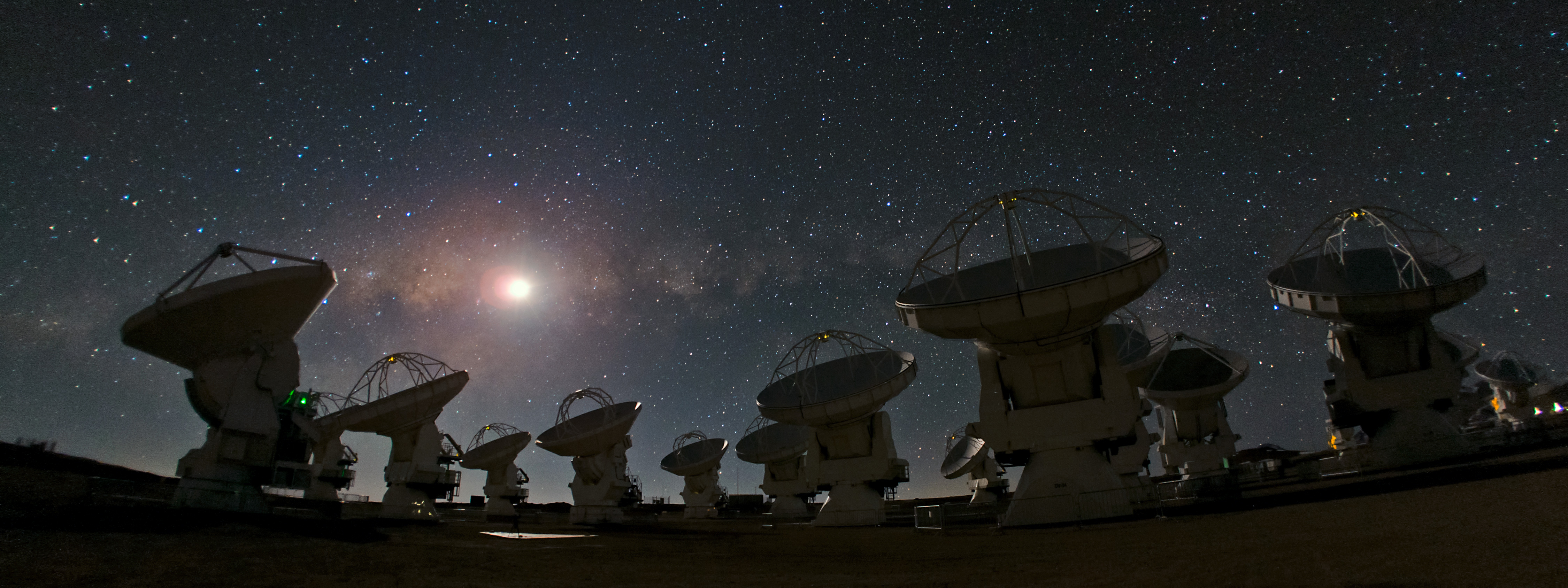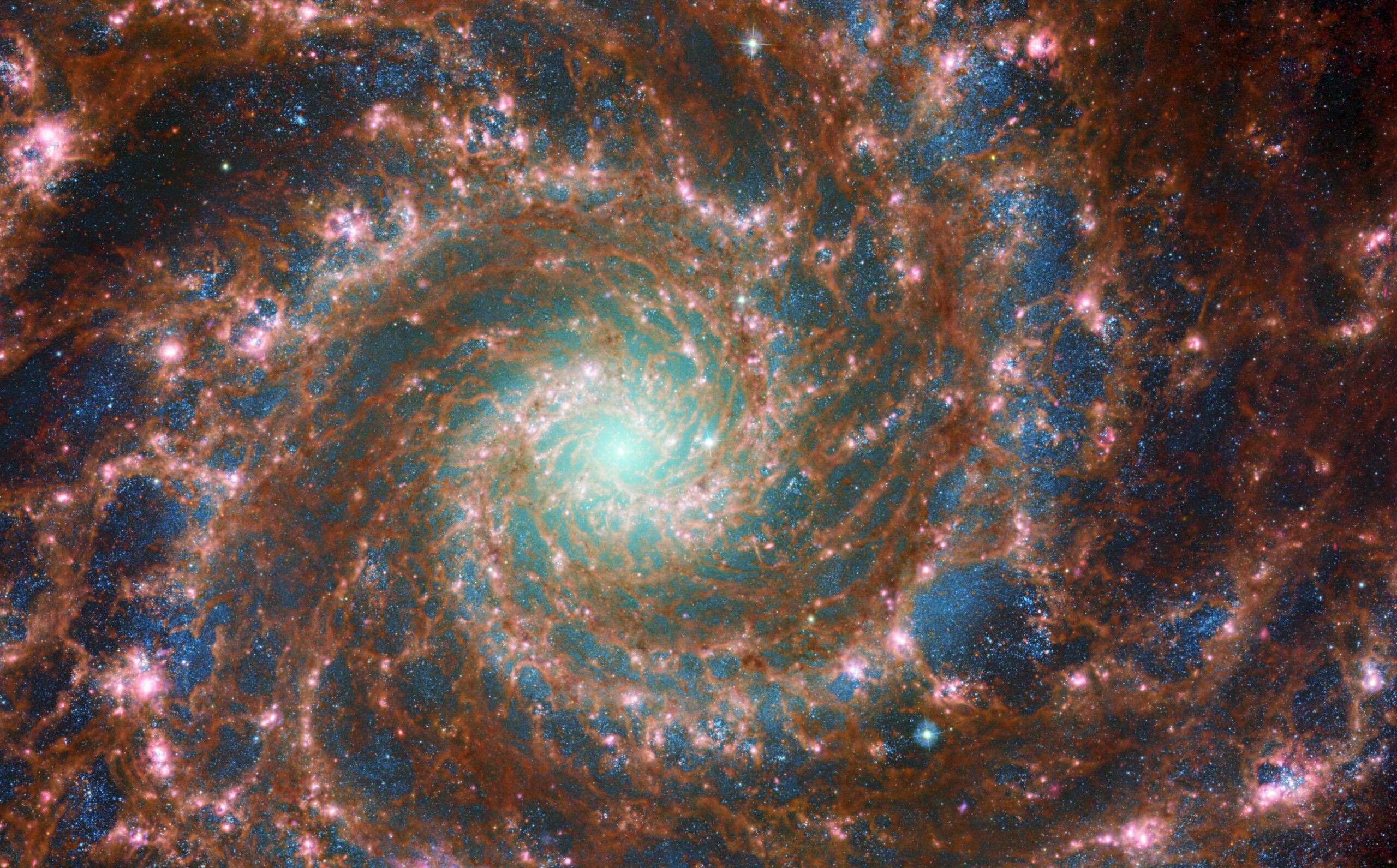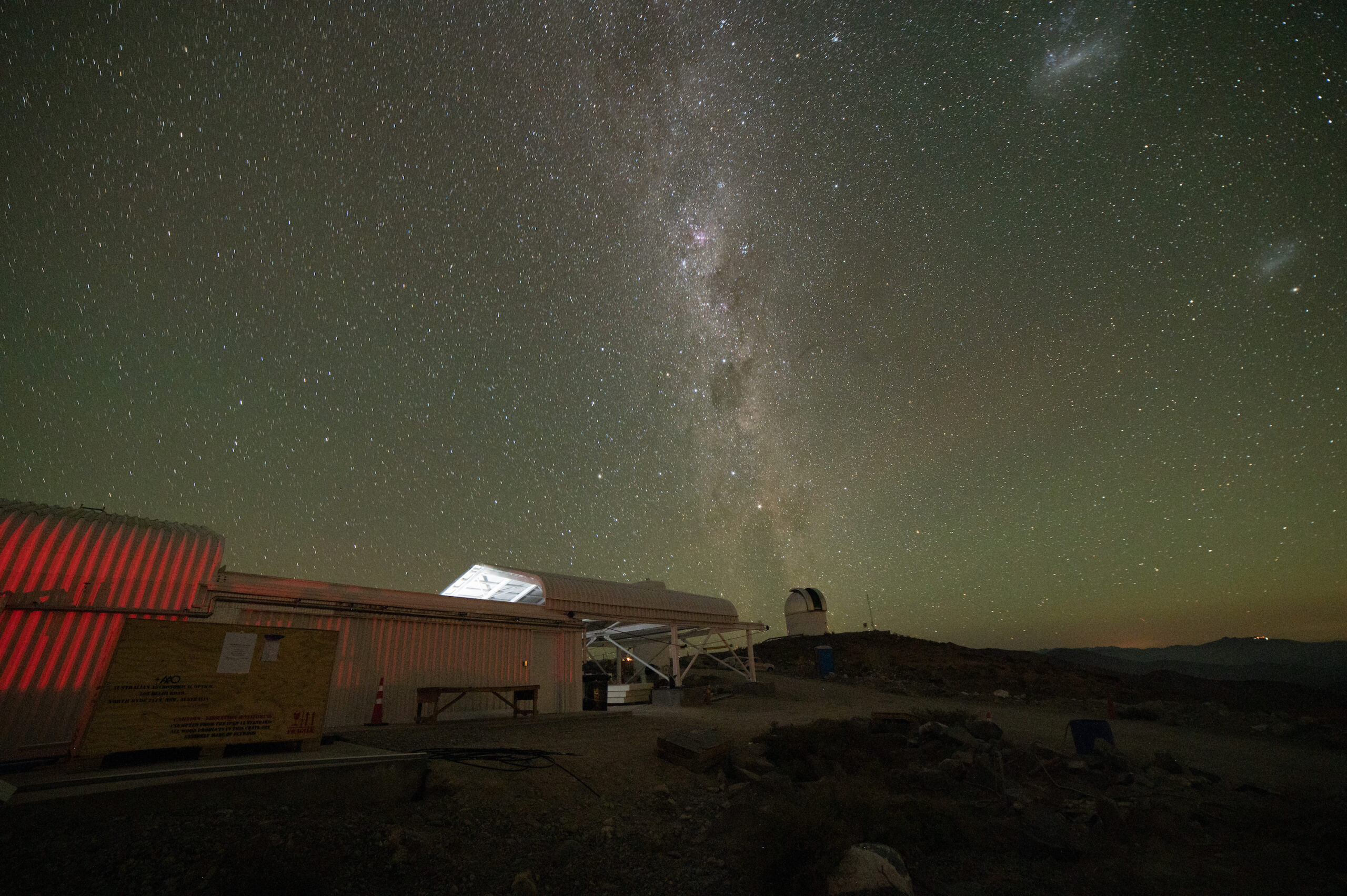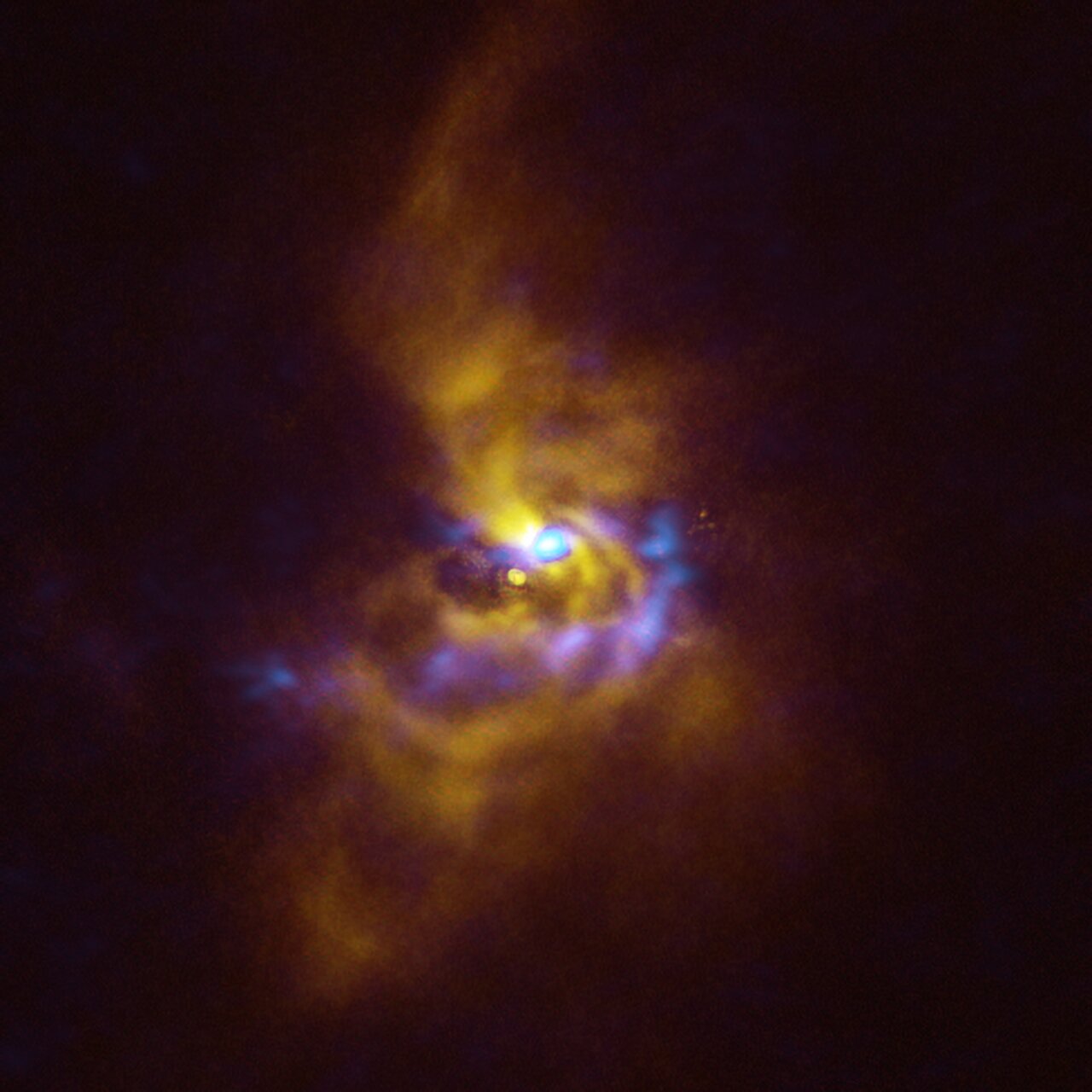
Applications for PhD 2020 open (deadline Oct 15)
The Ph.D. is 4 years long and students are expected to start research activities during their first semester in one of the following research areas:
Planetary systems: extrasolar planets, high-contrast imaging, planet formation, protoplanetary disks, and laboratory astrophysics of cosmic dust.
Stellar and Galactic astronomy: galactic archeology, stellar spectroscopy, stellar evolution, and galactic transients.
Extragalactic astronomy: Active Galactic Nuclei, supernovae, extragalactic transients, submillimeter galaxies, and galaxy evolution.
The program started in 2019. We offer a variety of courses which are decided on a semester-to-semester basis depending on the interest and need of the students.
Detailed description of our PhD program: English — Spanish
Regulations of our PhD program: English — Spanish
| Initial Cycle |
|||
| 1° semester | 2° semester | 3° semester | Qualification exam |
| Stellar and Galactic Astrophysics
(8 credits) |
Planetary systems or elective course (8 credits) | Extragalactic Astrophysics or elective course (8 credits) | |
| Research Project 1
(16 credits) |
Research Project II
(16 credits) |
Thesis Project
(16 credits) |
|
| Topics in Astrophysics (colloquia/astro-ph)
(6 credits) |
Topics in Astrophysics II (colloquia/astro-ph)
(6 credits) |
Topics in Astrophysics III (colloquia/astro-ph)
(6 credits) |
|
| Thesis cycle |
|||||
| 4° semester | 5° semester | 6° semester | 7° semester | 8° semester | Thesis defense |
| Doctoral Thesis I
(30 credits) |
Doctoral Thesis II
(30 credits) |
Doctoral Thesis III
(30 credits) |
Doctoral Thesis IV
(30 credits) |
Doctoral Thesis V
(30 credits) |
|
Ongoing Topics in Astrophysics:
March-July 2019
Astro-ph / colloquia
August-December 2019
Astro-ph / colloquia
INSANE WORKSHOPS
Funded by the joint committee ESO-Chile, each semester we have a special speaker from a Chilean Institution but outside Santiago who gives 2 lectures for every interested PhD student in Chile about a given subject.
First: 27-31 May 2019:
The art of modeling the spectral energy distribution of galaxies (by Mederic Boquien, U Antofagasta)
Second: (19-22 November 2019)
Stellar astrophysics (title to be determined) by Amelia Stutz, U Concepción.
——————————————————————————————————————————
PROGRAM OBJECTIVES:
1) Contribute to the training of researchers in astrophysics, one of the areas of science where Chile has the capacity to become a world leader.
2) To consolidate the group of scientists at the UDP Astronomy Nucleus, including outstanding students, postdoctoral researchers, and faculty through a high scientific productivity; enhancing the impact of the research carried out in the areas of Astrophysics of Planetary Systems, Stellar and Galactic Astrophysics, and Extragalactic Astrophysics, and its contribution as an internationally relevant actor within the discipline.
STUDENT’S PROFILE
The program is aimed at applicants who hold a bachelor’s degree or master’s degree in astronomy or related sciences (physics, planetary sciences, etc.). It is expected that the candidates have excellent qualifications in their previous careers, some experience in research projects and a very high level of motivation for research in astronomy. Applicants must also handle the English language (reading comprehension is essential and highly desirable oral and written expression) and be able to devote full time to the doctoral program.
GRADUATE’S PROFILE
The Doctors in Astrophysics from UDP will be able to develop original and independent research, contributing to the advancement of the discipline by publishing their results in journals and specialized conferences. They will have a solid formation in physical processes and its manifestation in astronomical phenomena, and the capacity of learning new tools -such as observation techniques, data management, analysis methods, numerical simulations- that will allow them to stay at the cutting-edge of their expertise, be it astrophysics of planetary systems, stellar and galactic astrophysics or extragalactic astrophysics. At the same time, the students will have developed critical thinking skills and capacities to work collaboratively, enabling them to insert themselves in international research networks and grow in demanding and competitive academic and professional contexts. Thus, doctoral graduates in UDP astrophysics will be able to work in purely academic environments, such as universities, or more technical, such as astronomical observatories.
BENEFITS:
Scholarships include stipend, health insurance, tuitions and fees. Research funds are also available from a number of different sources.
HOW TO APPLY:
The 2020 application process started on August 15, 2019. Deadline to be fully considered is October 15, 2019.
Application materials:
- Motivation letter indicating your reasons for applying to the Ph.D. program at UDP, research experience (if any), research interests, and career plans and goals (two pages maximum). The letter should also indicate the preferred starting date (March or August 2020). Potential applicants are encouraged to contact the faculty members best matching their research interests to learn more about possible research projects.
- Curriculum Vitae (3 pages maximum).
- Copy of undergraduate and/or graduate degrees or letter from University official indicating expected graduation date.
- Copy of undergraduate academic transcripts (graduate transcripts too, if available).
- A minimum of two and a maximum of three letters of recommendation sent directly by the recommenders to [email protected].
All application materials (including letters of recommendation) should be submitted by e-mail to [email protected] by October 15, 2019









